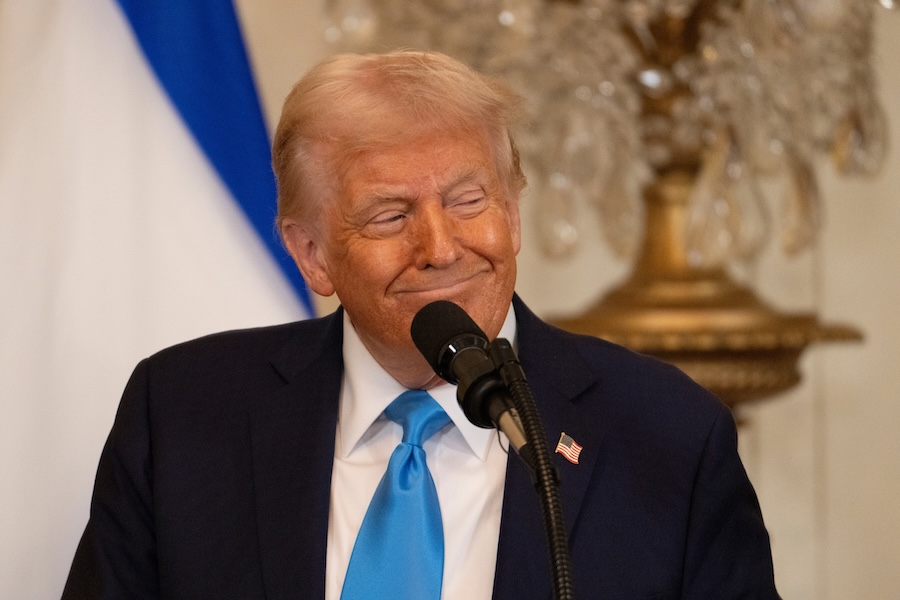Politics
JUST IN: Harvard Poll Shows Overwhelming Support For Trump, DOGE

History often irons out the wrinkles of past presidents’ legacies, but in the case of Joe Biden, he may be waiting a long time.
The former president remains wildly unpopular compared to President Donald Trump, already one of the country’s most polarizing figures in history. That’s the takeaway from a new poll by Harvard University’s Center for American Political Studies, which found that most Americans still prefer Trump’s first month to four years under the Biden-Harris administration.
58% of respondents say they are more satisfied with Trump’s job performance than Biden’s, a healthy figure given the endless string of statements, executive orders, and appointments that keep the Republican’s name in the media on an hourly basis.
Despite the hand-wringing by some Republican congressmen, the DOGE agenda is a popular one: The poll finds that 72% of Americans “support the existence of a U.S. government focused on efficiency initiatives,” the school states in a press release. The U.S. Department of Government Efficiency and its de facto leader, Elon Musk, have been at the forefront of dismantling large swaths of the federal bureaucracy, from USAID to the IRS.
President Trump’s overall approval rating still stands at 52% among all voters, with most reporting their satisfaction with his immigration agenda, reducing the cost of the government, and returning America to its values. Meanwhile, the Democratic Party’s approval rating is at an all-time low of 36%.
“People are taking a generally positive wait-and-see attitude for Trump but have really reassessed their attitudes toward Biden, Harris, and the Democrats, taking a much harsher, more negative attitude,” said Mark Penn, Co-Director of the Harvard CAPS / Harris poll and Stagwell Chairman and CEO. “Trump has a real opportunity here – we’re seeing a healthy, trudging approval edging toward real approval based on how the next couple of months turn out.”
The president’s popularity is extending to new members of his cabinet, including Health and Human Services Secretary Robert F. Kennedy, Jr. and Tulsi Gabbard, who start their terms with +9 and +3 standings, respectively. Vice President J.D. Vance is also above water by 4 points, as is the overall Republican Party (+1).
Even some of the culture war flashpoints appear to be on Trump’s side, albeit with mixed results: 70% of voters believe the government should make hiring decisions based on merit and objective evaluation rather than to achieve diversity, but 51% of voters say DEI departments are needed in government.
However, when it comes to the main elements of his agenda, Trump is hitting a home run with what voters want to see. Deporting illegal immigrants who have committed crimes is supported by 81% of respondents; eliminating fraud and waste in government expenditures receives 76% support, and closing the border (also supported by 76%) rounds out his three most popular initiatives.
For now, the president is in voters’ good graces when it comes to the economy, but that may change if hiring doesn’t speed up and prices don’t come down. Forty percent of voters say Trump’s policies make them better off financially, besting the 36% who disagree.
On tariffs, 57% agree with Trump that they are an “effective foreign and economic policy tool,” but at the same time, 62% “believe tariffs will raise prices of everyday goods” (Democrats: 75%; Republicans: 50%; Independents: 62%).
Ending the war in Ukraine has become the default position for most Americans who want to see an end to the three-year conflict. Seventy-two percent now say they’d rather see Ukraine negotiate peace with Russia rather than win the war, but a majority also oppose President Trump’s decision to pursue negotiations with Russia directly and without the involvement of Ukraine (59%).
The survey of 2,443 registered voters is one of the most comprehensive analyses of President Trump’s time in office since it began just over a month ago. It comes at a critical time, just before Congress is set to negotiate a deal to lift the debt ceiling and keep the government funded. Trump has indicated he expects Republicans to set aside their fears of the growing national deficit and deliver him a two-year hiatus from future debt ceiling discussions while paying for extensions of his 2017 tax cuts, among other new proposals.

